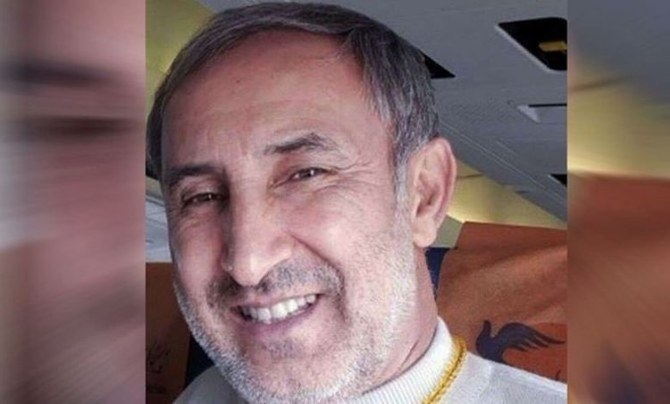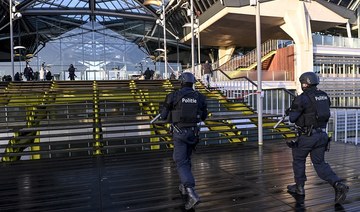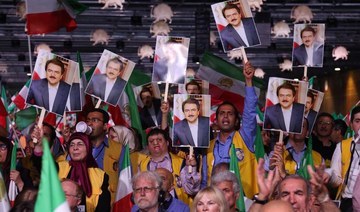LONDON: A former Iranian official accused of playing a role in mass executions of political prisoners in the 1980s will face trial in Sweden on Tuesday.
Hamid Nouri, 60, was arrested in Sweden in 2019 when he traveled from Iran to Stockholm to visit relatives.
Exiled Iranian activists have been preparing a case against him related to his role in the mass executions of political prisoners at the tail end of the Iran-Iraq war.
Nouri is accused of participating in “death commissions” that saw thousands of members, affiliates and sympathizers of the Mujahedin-e Khalq (MEK) summarily executed following sham trials.
The MEK is a political grouping that participated in the 1979 revolution but later fell out of favor with the revolutionary government and was violently suppressed.
Nouri’s identity emerged after one prisoner that he was ruthlessly beating saw his ID card when it slipped from his pocket during the assault.
The inmate saw it from under his blindfold, and years later published details of Nouri’s role in the torture of prisoners in a book about the experience.
Nouri’s trial has implications for Iran’s newly inaugurated President Ebrahim Raisi, who is widely known to have participated in the late 1980s executions, dubbed “death commissions” by Amnesty International. He was a prosecutor in Tehran, directly sending numerous people to their deaths.
Nouri’s trial is seen as a litmus test for the principle of extraterritorial jurisdiction, and if he is successfully prosecuted, that could increase the pressure on Raisi and further isolate him and Iran from the international community.
The MEK has welcomed Nouri’s prosecution, as has the National Council of Resistance of Iran (NCRI), the umbrella opposition movement of which the MEK is a part.
Many current NCRI members lost loved ones in those executions. “The families of the victims of the massacre, and the very few who survived, of course welcome the prosecution of Nouri,” Ali Safavi, a member of the foreign affairs committee of the NCRI, told Arab News.
“But they want this trial to act as a precursor to bring all those involved in this heinous crime, including regime Supreme Leader Ali Khamenei and Raisi, to justice and compel those responsible to reveal how many innocent captives they murdered, what their names were, and where they were buried.”
The MEK and NCRI say around 30,000 people were murdered — and that they have the names to prove it — while rights groups place the number at around 10,000. Amnesty International says the killings constitute crimes against humanity.
Safavi said: “Nouri’s prosecution will certainly shed some light on the hitherto undisclosed details of the 1988 massacre of 30,000 political prisoners, 90 percent of whom were affiliated with the MEK. Nevertheless, this should only be the beginning.”
He added: “Nouri was simply a functionary of the ‘death commissions,’ in which Raisi played a key role. As such, the international community, in particular the UN, must launch an international commission of inquiry to investigate this crime against humanity and bring to justice the perpetrators, first and foremost Raisi.”



























